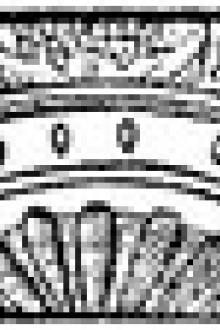English Dialects From the Eighth Century to the Present Day
English Dialects From the Eighth Century to the Present Day
Book Excerpt
n of King Alfred's translation of Pope Gregory's Pastoral Care, an example appeared in which it was employed in the most natural manner, as if it were in everyday use. At p. 443 of that treatise is the sentence--"Aris and gong to geonre byrg," i.e. Arise and go to yon city. Here the A.S. geon (pronounced like the modern yon) is actually declined after the regular manner, being duly provided with the suffix -re, which was the special suffix reserved only for the genitive or dative feminine. It is here a dative after the preposition to.
There is, in fact, no limit to the good use to which a reverent study of our dialects may be put by a diligent student. They abound with pearls which are worthy of a better fate than to be trampled under foot. I will content myself with giving one last example that is really too curious to be passed over in silence.
It so happens that in the Anglo-Saxon epic poem of Beowulf, one of the most remarkable and precio
Editor's choice
(view all)Popular books in Language, Fiction and Literature
Readers reviews
0.0
LoginSign up
Be the first to review this book
Popular questions
(view all)Books added this week
(view all)
No books found

 Free Download
Free Download























